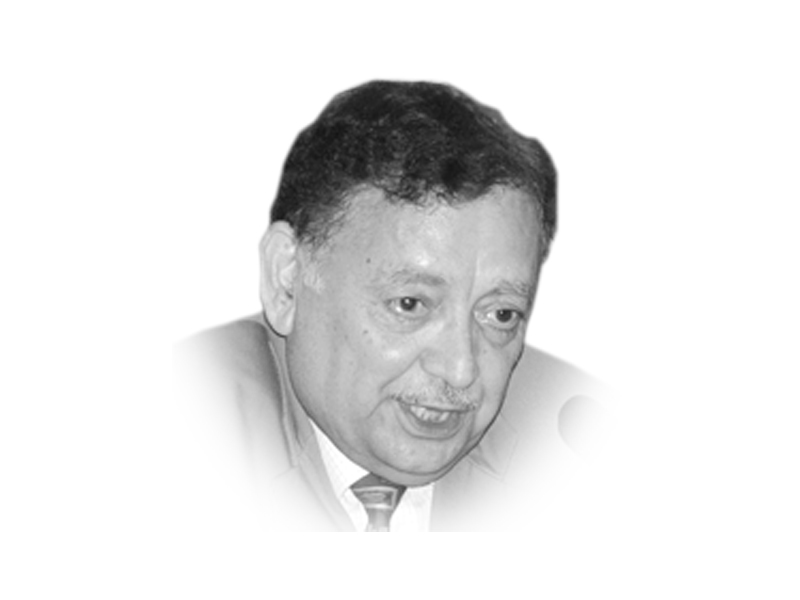
The deliverables on the two sides were by no means easy. The Indian demand for Pakistan to deliver on the issue of terrorism concerning Mumbai and the LeT-JD leader was not going to be met anyway. Pakistan is simply too deeply engaged in the issue of safeguarding its interests in post-Nato Afghanistan to take a clear position on the non-state actors. The country is hopelessly divided on the issue of launching an operation against the Taliban and proto-Taliban groups, despite a recent nod in favour of negotiations with them from parliament.
The Indian demand enjoys a priori endorsement from the world capitals. This demand has had periodical reverberations through the media for a decade. In this context, Indian diplomacy is underscored by the legitimacy of the war against terror that has put Pakistan in the dock. Its capacity to fight back on this issue has been circumscribed by a loss of credibility because of the Abbottabad operation that unearthed Osama bin Laden’s place of hiding near the country’s strategic heartland, an unwillingness to launch a military operation in North Waziristan and its alleged procrastination in the matter of pursuit of terrorists involved in the Mumbai attacks.
As opposed to the global and regional appeal of the Indian agenda of anti-terrorism, Pakistan’s agenda is typically bilateral, i.e., Kashmir, Balochistan, Sir Creek, Siachen, and building of dams on rivers flowing into Pakistan. Unfortunately, these issues have a limited appeal for the diplomatic community. Thus, Pakistan finds itself playing on a non-level field because of the peculiar hierarchy of international issues that disfavour it. That has, in turn, led to an ideological perspective couched in conspiracy theories.
Speculations about whether the meeting will go ahead as scheduled continued to cast their shadow till the end. The two governments struggled to contain the negative fallout of the recent violations of the Line of Control (LoC). In the first round of the fallout, Manmohan Singh was clearly the loser at the hands of the opposition at home. The BJP pursued a smear campaign against him for his alleged appeasement of Pakistan and accused him of inaction in response to the killing of Indian soldiers at the border. All this was bound to rob any summit meeting of a substantive move forward. A beleaguered Congress government in Delhi was constantly on the defensive for seeking to keep the line of communication open across the border.
In Pakistan, Nawaz Sharif was an indirect beneficiary of the Indian media’s coverage of the firing across the LoC. It was claimed that his initiative to open up to India was sabotaged by the military establishment. The 2008 Mumbai attacks were mentioned in a similar vein for arguing that civilians were checkmated by the men in uniform. While the LoC firing led to a setback for the PML-N government’s policy of opening up to India, this policy had no powerful stakeholders at home anyway. The government was yet to convert the influential mavericks to its Indian initiative. Nawaz Sharif came out relatively unscathed from the LoC episode and tried to restore the momentum through the summit meeting.
However, the prime minister’s foray into New York did not bring laurels for him. His speech in the General Assembly was based on a somewhat pointless reiteration of the traditional standpoint of Islamabad on Kashmir and other issues. A person-to-person chemistry can help move to substantive nation-to-nation dialogue. It withdrew from the spirit of bilateralism — that under-girded the 1972 Simla Agreement and the 2004 Islamabad Declaration — to a sombre UN route of half a century ago. His idiom followed a textbook approach that typically carried the Foreign Office stamp. There was no resolve to start a new era.
The controversy about the prime minister’s assertion that his Indian counterpart had gone to President Obama to complain about Pakistan shortly before his meeting with the former could be avoided. Personal chemistry can help lay out the turf for understanding between nations. In the end, the post-breakfast meeting turned out to be a non-event. It seems that there was no homework done prior to the meeting. No side was in a mood to give any concession to the other. An opportunity of opening up hearts and minds to each other was lost to both countries.
The New York summit is a classic example of passive diplomacy, characterised by defensive posturing about the respective national positions and no talk about further talks. Invitations for the two prime ministers to visit each other hardly looked serious, given the hawks blowing hot and cold at home. Still, the two governments preferred to bill the meeting as a success with a view to keeping the initiative alive. Some cynical analysts also point to the maxim: know thy enemy. Their argument is that knowing who is in charge in Delhi and Islamabad, taking what position and using which idiom could be of great help for the two establishments.
Manmohan Singh is on the way out in terms of his political career. His ambition for a personal gain in diplomacy was limited. Returning from a meeting with his Pakistani counterpart without any tangible move forward on the diplomatic front is not a great personal loss. But it is certainly not good for his party. The BJP’s prime ministerial candidate, Modi, has blatantly criticised Nawaz Sharif for ‘insulting’ Manmohan Singh, while referring to his unconfirmed remarks. Has Pakistan unwittingly helped the BJP against the Congress in the context of the 2014 elections?
On the other hand, for Nawaz Sharif, who is at the beginning of his third tenure, stakes are higher. He had nothing to show back home in terms of any advance on his trade policy or putting in place a firm schedule of the next round of talks with India. Musharraf’s comprehensive dialogue with India 2004-2007 and Zardari’s move to form a Friends of Pakistan group of Western countries are already part of history. He could have taken a fresh and meaningful policy initiative that was keenly awaited in world capitals.
Prime Minister Nawaz Sharif’s back-channel diplomacy is already on hold. He needs to take bold decisions and put the foreign policy initiative back in the hands of the elected government. This is the time to chart out a role of a grand peace-maker for himself in the whole region.
Published in The Express Tribune, October 16th, 2013.
Like Opinion & Editorial on Facebook, follow @ETOpEd on Twitter to receive all updates on all our daily pieces.
COMMENTS (40)
Comments are moderated and generally will be posted if they are on-topic and not abusive.
For more information, please see our Comments FAQ

1731329418-0/BeFunky-collage-(39)1731329418-0-165x106.webp)












A very well-reasoned, intellectually honest and analytical article. The author is very correct that Pakistan lost a great opportunity to make peace. This opportunity/opening has been the first one since the Mumbai attack. Nawaz Sharif let himself to be over-ruled by the military establishment. He allowed the military establishment to again take the page from Kargil history and enact it again to scuttle his peace initiative.
"As opposed to the global and regional appeal of the Indian agenda of anti-terrorism, Pakistan’s agenda is typically bilateral, i.e., Kashmir, Balochistan, Sir Creek, Siachen, and building of dams on rivers flowing into Pakistan. Unfortunately, these issues have a limited appeal for the diplomatic community. Thus, Pakistan finds itself playing on a non-level field because of the peculiar hierarchy of international issues that disfavour it."
That is a very astute observation. Yes, indeed the international community has no appetite for use of terrorism in foreign policy formulations. The international community has become accustomed to let out a big yarn on issues of Kashmir, water etc;, they just don't care.
The bottom-line is that India has far more fortitude and capacity to absorb terror attacks and Pakistan's anti-India aggressive paradigm than Pakistan, as can be seen in the steady boomerang of degradation of economic, social and political progression in Pakistan.
What the Pakistani establishment needs to realize is that the great geopolitical games are over, India has leaped ahead and that it is time to stop shooting itself in the head.
@Alamgir: Your post reflects a thinking and mindset that skirts the fine line between illusion and delusion. It also tells us that even if the entire population becomes a hundred per cent literate, the problems confronting the country are unlikely to be solved. After reading your post, I can understand the seriousness of the challenges faced by Pakistan.
Of course Mian sahib has seized the peace initiative. By taking a firm and aggressive stance regarding IOK, he has served notice on the Indians as to what they can expect if they don't make peace and solve the core issue of Kashmir. He has also rightly refused to give the Indians what they desperately want, namely MFN status, and so-called "justice" on the Mumbail attacks.
What short-sighted people like the author fail to realize is that our country's leaders take the long-term view. The Indians are people without any convictions or goals other than becoming prosperous. So, sooner or later, they will be worn down by our persistence and struggles, and will give in to our just demands. At that time, the wealth built by them will be for us to enjoy.
@ashar: Most invincible army? Superpower? This is probably the biggest reason why Pak still remains backward. Rather than concentrating on foreign bought fighter jets and Chinese missiles, please concentrate on not going backrupt.
@Parvez: It maybe worth your while to check Part II of this link http://www.kashmiri-cc.ca/un/sc13aug48.htm
@sahil: Do you read Indian newspapers? watch Indian electronic media? In India it is not just politicians but also army, judges, corporate bigwigs are scrutinized. In Pakistan we do not see corruption by army or corporate biggies being discussed. Also India has not blocked youtube which is another way of suppressing dissent in Pakistan. Also unlike Shia and Ahmadi websites which are blocked in Pakistan, in India there are no such restrictions.
@Kaleem: India did not take it to UN, it was Nehru. Ask any Indian and they will never let their leaders or for that matter anybody in the world to take away Kashmir. Kashmir is and always was part of India. Even Pakistan was part of India. Whatever your fabricated text books says the whole land from Afghanistan till Burma were ruled by Hindu Kings for centuries. How else do you think the Buddhist statue were build in Afghanistan ? It was build by King Ashoka who embraced Buddhism. I can go in lengths with history with you, but this is not the space.
@sahil:
I don't think you read Indian news papers. I think Indian media has criticized Indian Govt. more than anybody else ever did.
Nawaz Sharif's sense of timing is way off. This is not the time to engage India with anything, let their elections take place and then proceed. Nawaz has much bigger issues at home that need attention and using India as a diversion is bad policy. Let India be and possibly by doing that, we may benefit.
@ashar: Huh?!?! "superpower" you say that you are --- I will believe that once your government or army (assuming that it is "Pakistan's" as we know it) can shoot down at least ONE DRONE without getting its rear-end KICKED!! The plain fact is my dear chap that India will be only too glad Pakistan learns to stand on its OWN 2 feet without having to go to "Big Daddy" (America) for this dole or that... and there is no sense in displaying false bravado and rhetoric. The whole world knows that Pakistan is only living on borrowed time (or IMF dole i.e. USA dole, call it what you like) ... and the above author Mr. Waseem is precisely trying to delink you guys from this "vicious circle" .... the more you keep making comments like these, the more that Pakistan is shown in poorer light, OK!!
Excellent article. loved reading it. Hope we get to read more from Mohammad Waseem.
the political drama --> Has Pakistan unwittingly helped the BJP against the Congress in the context of the 2014 elections?
Excellent Excellent article! Professor Waseem is one of the very few Pakistani scholars who can debate with such precision and balance! Please keep writing for the newspapers. We need more from you!
@sahil: I bet you are not from India.
Pakistan will have to overcome the existential crisis. By taking the bull by horn. On economic from, why Pakistan is holding up MFN Status to India? If Pakistan doesn't want to help itself, who should?
@wonderer: Is it not becoming more and more clear by the day that Pakistan badly needs peace and normal relations with India? Certainly sir. But to add to your point, peace and normal relations with India require no meetings or bonhomie, but just cleaning up your act at home - getting rid of home-grown terrorists, shutting of extremist funding inflows, and keeping your promises, especially the one about not allowing your soil to be used for anti-India activities. India will benefit, but Pakistan will benefit even more.
@Sultan Ahmed.you say: "World should opened heart recognized this fact, Pakistan’s efforts regarding the peace in the region are sincere but other side unleashed opposition and the generals wondering on the line of control violating ceasefire agreement" Tell me one country in the world will beleive this with you. Even China, in 2011-2012 warned you publicly twice about sending your terrorists into China.
Is it not becoming more and more clear by the day that Pakistan badly needs peace and normal relations with India? And this need will grow to become a desperate necessity in not too long a time in future. India not only knows this, but has been expecting it for a long time.
What should anyone in Pakistan interested in the welfare of the state who is in possession of basic logic and capacity to reason deduce as the most logical way forward for Pakistan? Let us think. India and Pakistan both need peace but only Pakistan's need is urgent. India too needs peace as soon as possible, but can afford to wait. This reasoning would lead to only one conclusion, which in very simple words means that Pakistan cannot get peace at its own terms but only at India's. It would therefore be prudent of Pakistan to be ready to make concessions and not expect the same from India. Difficult yes, but not impossible.
At least one thing should be as clear as day-light. India is never going to be cowed down by terror.
Best of luck to both!
In the very outset,after coming into power, newly elected prime minister of Pakistan express his desire better bilateral relations with India.
He conveyed his meaasge of good will gesture to his Indian counterpart but received no such reply as expected,
United Nation's sideline meeting remained fail to bring betterment in the ciecumstances.Pakistani premeir invited Indian counterpart to visist pakistan ,invitaion has been accepted but still resultless.
World should opened heart recognized this fact, Pakistan's efforts regarding the peace in the region are sincer but other side unleashed opposition and the generals wondering on the line of control violating ceasefire agreement.
The question,arising out in minds is that what kind of respons they are giving in reagrd to pakistani behave.What they are doing why they are doing,on whome's indication they are exposing such manner?
According to media report,everything is being brought in the American notice and United states and allied forces is exected going back in December 2014,perhaps India want play a role in safe withdrawal of the forces from land locked country Afghanista.
India is well aware that the recourse to terrorism is going to destroy Pakistan completely -- no FDI, no tourism, only guns. Pakistan has shown absolutely no resolve to change its aggressive and failed policies like strategic depth, use of non state actors and penchant for violence. Why would any country leave aside India offer concessions, Pakistan being unable to offer anything positive. India I think would prefer to stay out of the picture, overtures, negotiations and other symbolism. Pakistan has talked and promised a lot for years, following it with a stab in the back. No country can help Pakistan which has decided to pursue policies guaranteed to self destruct, if not today, tomorrow. Only Pakistan can help itself, World would be happier to see the Government indulging in less talk and more action. Actions always speak louder than words.
@sahil: Think there was a spelling mistake.You typed ET instead of TTP!!!!!!!!!!
Nawaz in his pre-election speeches had said he wants peace with India and he got elected meant the Pakistani public was with him on that issue . Considering the public support he had on the peace issue i had hopes from him but he has been a disappointment it seems the army and the jihadis still call the shots .
It is Pakistan's claim that MMS complained to Obama about Pakistan. India's position is it just shared more information with US. Do you think Obama doesn't know! Be realistic. It is an understatement to say the capture of OBL "circumscribed" Pakistan's position. You can call pinnacle of glory or icing on the cake, or something like that
10 -15 years ago Indian diplomats/ govt had to supply evidence on Pakistan's nefarious activities. Now things are much easier since every one knows.
Also capturing Ajmal Kasab alive was a big breakthrough. Even after that we see in this paper we read comments Mumbai attack was carried out by Indians, etc. Thanks to the incredible bravery of the lowly paid Mumbai constable Tukaram Omble who took the bullets into his stomach and held on to Ajmal Kasab.
Sharif will be wasting his time trying to get "peace negotiations" started with India; as India will not compromise on it's anti-terror stance, nor Kashmir. Best use of Sharif's time would be to develop his own powers internally and get real control of defence, nuclear and foreign policies -- which today is controlled by the Army. Only then will India take him seriously. India at the moment might as well negotiate with Kayani directly....
If the military-mullah axis in Pakistan does not mend its ways it will soon find itself on the same table as Iran in Geneva today trying to cobble a deal with the P5+1 group of nations. No civilized country including China has any appetite and/or tolerance for state-sponsored terrorism. One cannot believe the military when it says it has no control over rogues like Hafiz Saeed.
The GOP is a minor stakeholder in Pakistan. The real stakeholders are not in the government of Pakistan at the moment. Nawaz does not have the power of the street or the majority of the people behind him to play a peacemaker of the region. He may want to, but if the stake holders that are killing generals of the army dont want then Nawaz's word carries little value.
"Pakistan is simply too deeply engaged in the issue of safeguarding its interests in post-Nato Afghanistan to take a clear position on the non-state actors. The country is hopelessly divided on the issue of launching an operation against the Taliban and proto-Taliban groups . . . ."
Until Pakistan addresses this issue, I think there can be no peace with India. Peace means a cessation of attacks. Pakistan wants peace with India, but doesn't want to stop the attacks. No can do. Peace for peace. Real peace.
So the dialogue with India must await Pakistan's efforts to pacify the Taliban, LeT, et al.
Or perhaps the DGMOs will actually try cooperatively to stop cross-LoC infiltration in J&K. Then the skies can open and rain down peace.
imho
@ashar: Why should you care? It is the facts and ideas that are important. His facts appear accurate. So what do you think of his ideas?
I thought only Zaid Hamid was the voice from Pakistan but I stumbled upon this article.
I don't know much about Pak newspapers but the students at LUMS are very lucky to have scholars such as author teaching them.
Best Wishes to All.
@observer: Yup, 'border'ing on this issue, clearly that man @ashar has been 'Left'-out-'side' of the whole logic... going by comments I have seen from him in the past! Speaks in general of the confused state of mind most Pakistani leaders (and indeed its citizens) seem these days on how much of the past ghosts (of Indo-Pak relations) to cling on to...
Most sensible article I have ever seen in recent times. I feel sorry for Kashmiris, I being one that both India and pakistan have not been serious solving the issues. It will help if pakistani military stops meddling with the foreign policy and seriously disbands all the proxies and non state actors. This policy has not worked for the last 60+ years and unlikely to work as It looks like Indians are getting tougher, bolder and assertive day by day mainly because of our failed policies.
@ Ashar
It is not partisan to either side, well balanced and cogent.
@author,
you have given a competent and balanced analysis, but your conclusions and suggestions are pretty tame.
Nathan
@ ashar, if you guys can tolerate ET in your country, I bet you are the most tolerant people on earth. In india, the military-intelligence apparatus, and even the political class would have buried a n openly hostile, anti nation paper which always speaks up for its openly, hostile, incorrigble enemy.
@ashar:
Sometimes it is difficult to understand from which side of the border this opinion or advise has came?
From the 'Right' side of the border.
Sometimes it is difficult to understand from which side of the border this opinion or advise has came?